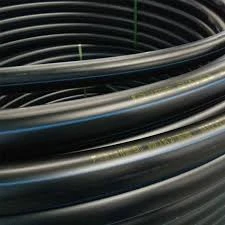дек. . 29, 2024 13:12 Back to list
Understanding the Benefits and Applications of CPVC Pipe in Construction Projects
Understanding CPVC Pipe A Comprehensive Overview
In the realm of plumbing and construction, the choice of materials is critical to ensuring durability, efficiency, and safety. One such material that has gained immense popularity in recent years is CPVC (Chlorinated Polyvinyl Chloride) pipe. Typically used in residential and commercial applications, CPVC pipes have established themselves as a reliable option for conveying hot and cold water. This article delves into the advantages, applications, and installation of CPVC pipe, shedding light on why it is a preferred choice among builders and plumbers.
What is CPVC Pipe?
CPVC pipe is a type of rigid plastic piping manufactured from chlorinated polyvinyl chloride. The chlorination process enhances the physical and chemical properties of the standard PVC pipe, making CPVC particularly suitable for transporting liquids under high temperatures. CPVC is available in various diameters and wall thicknesses, making it versatile for multiple applications.
Advantages of CPVC Pipe
1. Temperature Resistance One of the standout features of CPVC pipe is its ability to handle higher temperatures compared to regular PVC. CPVC can withstand temperatures up to 200°F (93°C), making it ideal for hot water plumbing applications. This temperature resilience is instrumental in preventing pipe deformation and failure.
2. Corrosion Resistance Unlike metal pipes, CPVC is inherently resistant to corrosion, rust, and scale buildup. This property not only extends the lifespan of the plumbing system but also ensures that water quality is maintained, free from contaminants that can leach into drinking water.
3. Easy Installation CPVC pipes are lighter than metal pipes, making them easier to handle and install. The joining process is straightforward, typically requiring solvent cement, which allows for quick assembly. This ease of installation can significantly reduce labor costs and project timelines.
4. Cost-Effective While the initial material cost of CPVC might be slightly higher than PVC, the long-term benefits it offers make it a cost-effective choice. Its durability and resistance to degradation reduce the need for frequent replacements or repairs, providing long-term savings for homeowners and builders alike.
5. Chemical Resistance CPVC displays a high degree of resistance to a variety of chemicals, including acids, bases, and salts. This property makes it suitable for industrial applications, where exposure to harsh substances is a common concern.
cpvc pipe

Applications of CPVC Pipe
CPVC pipes are extensively used in various industries due to their desirable properties. Some common applications include
- Residential Plumbing CPVC is often used for domestic water supply lines, hot and cold water systems, and even for drainage in some instances. - Industrial Piping Systems Industries that deal with chemicals find CPVC to be an excellent choice for piping systems due to its chemical resistance and durability. - Fire Sprinkler Systems CPVC is also approved for use in certain types of fire suppression systems, providing an effective solution for building safety. - HVAC Systems CPVC can be used for heating and cooling systems, ensuring efficient temperature control in commercial buildings.
Installation Considerations
While CPVC pipe installation is relatively straightforward, there are some key considerations to keep in mind
- Temperature Sensitivity CPVC should not be exposed to direct sunlight for prolonged periods, as UV rays can cause deterioration. It is essential to store CPVC pipes in shaded areas and cover them during installation if exposed to sunlight. - Expansion and Contraction Like all materials, CPVC expands and contracts with temperature changes. Installers should leave appropriate space for expansion in their design to prevent stress on joints.
- Appropriate Fittings It is crucial to use fittings and connectors that are compatible with CPVC to maintain the integrity of the plumbing system. Mismatched components can lead to leaks and failures.
Conclusion
In conclusion, CPVC pipe is an excellent choice for various plumbing and construction applications, thanks to its unique properties and advantages. Its resistance to heat, corrosion, and chemicals, combined with ease of installation and cost-effectiveness, makes it a preferred material for many professionals in the industry. Whether for residential or industrial use, understanding CPVC pipe helps ensure that the right decisions are made for reliable and long-lasting plumbing systems.
-
Durable PP Rigid Sheet: Lightweight, Chemical Resistant Solutions
NewsAug.21,2025
-
PVC Grey Sheet for Extraction: Chemical Resistant & Durable
NewsAug.19,2025
-
Durable PVC Pipe Fittings for Plumbing & Irrigation Needs
NewsAug.18,2025
-
HDPE Steel Belt Reinforced Spiral Corrugated Pipe | High Strength
NewsAug.17,2025
-
HDPE Pipe Fittings: Durable, Leak-Proof Solutions
NewsAug.16,2025
-
Premium CPVC Sheet: High-Temp & Chemical Resistant Solutions
NewsAug.15,2025

